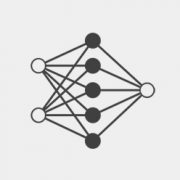We developed an AI-based cough sound analysis technology to help identify at-risk Covid patients before administering lab-based tests, even if they’re asymptomatic.
To the best of our knowledge, this is currently the largest Covid cough dataset with verified ground truth labels from RT-PCR test results. At the current performance and at an assumed disease prevalence of 5%, our model can potentially increase testing capacity by 43%.
Given recent developments in the fight against Covid, we have open sourced our codebase, trained models and datasets. We believe that open innovation is the fastest and most reliable way to take our work to the next level and deliver screening and triaging solutions that can benefit millions of people in a short time frame.
We aim to make our work available to researchers and healthtech developers who can use the resources to build solutions that meet clinical and regulatory requirements, and can get these solutions to the health system faster than we are able to. We also believe that our work can be beneficial to those developing screening and triaging solutions for other respiratory illnesses. We also believe that our work can be beneficial to those developing screening and triaging solutions for other respiratory illnesses. The various pathogens that cause respiratory diseases affect the lungs and airways in different ways. The cough sound contains vital information about the state of a patient’s respiratory tract. Doctors use stethoscopes to listen to the lungs when they suspect a respiratory problem. Experienced doctors can even recognise the acoustics of the cough and use it to inform their assessment of the patient.

© 2025 Wadhwani AI
ROLES AND RESPONSIBILITIES
An ML Engineer at Wadhwani AI will be responsible for building robust machine learning solutions to problems of societal importance; usually under the guidance of senior ML scientists, and in collaboration with dedicated software engineers. To our partners, a Wadhwani AI solution is generally a decision making tool that requires some piece of data to engage. It will be your responsibility to ensure that the information provided using that piece of data is sound. This not only requires robust learned models, but pipelines over which those models can be built, tweaked, tested, and monitored. The following subsections provide details from the perspective of solution design:
Early stage of proof of concept (PoC)
Late PoC
This is early to mid-stage of AI product development
Post PoC
Responsibilities during production deployment
We realize this list is broad and extensive. While the ideal candidate has some exposure to each of these topics, we also envision great candidates being experts at some subset. If either of those cases happens to be you, please apply.
DESIRED QUALIFICATIONS
Master’s degree or above in a STEM field. Several years of experience getting their hands dirty applying their craft.
Programming

ROLES AND RESPONSIBILITIES
As an ML Scientist at Wadhwani AI, you will be responsible for building robust machine learning solutions to problems of societal importance, usually under the guidance of senior ML scientists. You will participate in translating a problem in the social sector to a well-defined AI problem, in the development and execution of algorithms and solutions to the problem, in the successful and scaled deployment of the AI solution, and in defining appropriate metrics to evaluate the effectiveness of the deployed solution.
In order to apply machine learning for social good, you will need to understand user challenges and their context, curate and transform data, train and validate models, run simulations, and broadly derive insights from data. In doing so, you will work in cross-functional teams spanning ML modeling, engineering, product, and domain experts. You will also interface with social sector organizations as appropriate.
REQUIREMENTS
Associate ML scientists will have a strong academic background in a quantitative field (see below) at the Bachelor’s or Master’s level, with project experience in applied machine learning. They will possess demonstrable skills in coding, data mining and analysis, and building and implementing ML or statistical models. Where needed, they will have to learn and adapt to the requirements imposed by real-life, scaled deployments.
Candidates should have excellent communication skills and a willingness to adapt to the challenges of doing applied work for social good.
DESIRED QUALIFICATIONS
